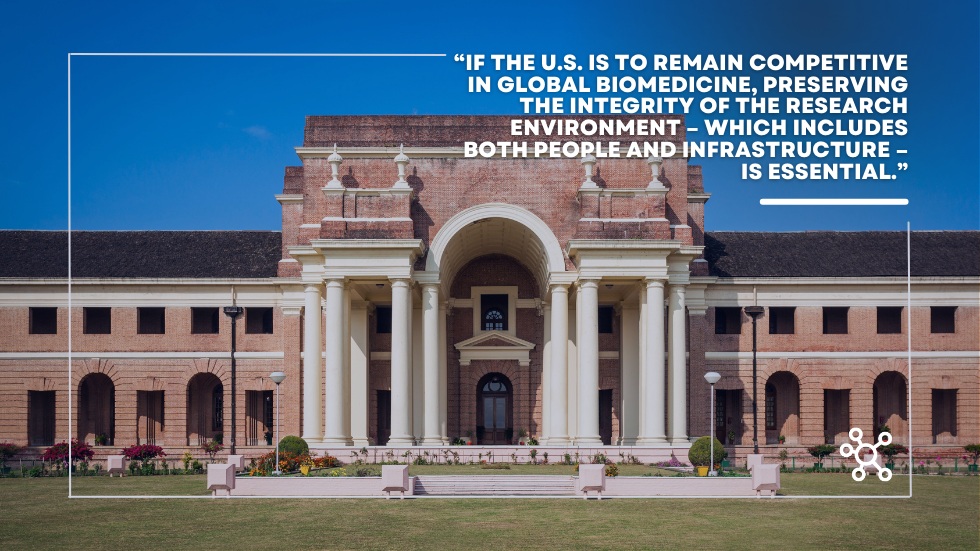”I want to be a recruiter when I grow up!”
Okay, chances are you never uttered those words as a child. As Allison Ellsworth, Sr. Recruiting Partner and Director HR at Sci.bio, says “The vast majority of people don’t go to school to become a recruiter. You kind of fall into it through different choices you make on your career path, as you follow and develop your skill set.”
So let’s assume that over the years as you either considered options for starting your career or have contemplated a career shift, you decided that recruiting might just be the job for you. After all, you like interacting with people and think you’re a good judge of them; you can see yourself enjoying the prospect of conducting interviews on a daily basis and think you might even be pretty good at it.
But there’s more to being a great recruiter than just an affinity for talking to talk to people. Of course, that’s a necessary trait; if you don’t like interacting with people recruiting is likely not the job for you. But there’s also much more involved than the interview alone; a number of different types of skills and attributes are necessary to truly stand apart as a great recruiter.
3 Types of Skills/Attributes
The skills and attributes required can be grouped into three categories: Interpersonal Skills, Personal Attributes, and Business Skills. Let’s take a look at what falls into each of these categories.
Interpersonal Skills
Interpersonal skills could be considered the ante just to get into the game; any great recruiter has mastered them. When your job centers around interacting with and assessing people on a daily basis, things like communication skills and the ability to build and develop relationships are a must.
Great Communication Skills
The ability to verbally articulate is certainly important, but good communication skills go beyond speaking, or even writing. The ability to read body language to ascertain the real meanings, feelings, and emotions behind the words a candidate is saying, as well as the ability to use your own body language to put others at ease are just as important. And being able to actively listen to the nuances of what a candidate says – again, going beyond the simple words – can go a long way in making a thorough and accurate assessment.
Relationship Building
Some may say that recruiting truly is an art of relationship building. And this means not only building and nurturing relationships with current and potential candidates, but also doing the same with hiring managers and even fellow recruiters. Finding and placing that perfect candidate in the perfect role is a team sport and requires trust, reliability, and a strong connection with all parties involved.
Personal Attributes
If interpersonal skills are the ante, certain personal attributes are the things that refine your ability to be a great recruiter even further. The tricky thing here is that some of these attributes tend to be inherent in a person and might be tough to learn if you don’t already have them. That’s not to say that can’t be learned, but if they come naturally to you, it may make being a great recruiter a little easier for you to attain. Some of the most important include:
Resilience/ Adaptability – when you’re dealing with various people, numerous variables can come into play, some that can even be beyond your control. People can be unpredictable, schedules can change last minute, and priorities and needs of both people and organizations can shift without much warning. When things don’t go as planned, the ability to bounce back and/or change your approach is key.
Patience/ Professional Persistence – sometimes it might take multiple tries to find and recruit the perfect candidate; the ability to play the “long game” and not give up after a first seemingly failed attempt can serve you well.
Results driven – recruiting can be a competitive profession, especially in industries that are in high growth mode where demand for talent may outpace supply. The best recruiters know how to set goals, keep focused on those goals, and work tirelessly towards them until they’re achieved.
Integrity – having a reputation for operating ethically and with honesty, and with the best interests of all involved always front and center can really set you apart from those who might use more questionable tactics to achieve their goals.
Business Skills
In a profession that is hyper-focused on people skills and relationship building, this final group of skills can sometimes be overlooked, but can truly level you up and make you stand apart from the rest.
Industry/Job Knowledge – having strong working knowledge of both the industry in which you are recruiting and the specific jobs you are trying to fill will make you more effective in assessing a candidate’s fit for an opportunity. Knowing the job intimately isn’t necessarily required, but having a working understanding of some of the key responsibilities and skills/experience needed to accomplish them will help you dig a little deeper in your interviews. Additionally, different industries often have their own unique attributes, needs, and nuances, and having a solid understanding of those will make finding the right talent that much easier.
Sales/Marketing skills – part of your job as a recruiter is to “sell” your ability to fill the role to the hiring manager, then “sell” the opportunity to potential candidates and the candidates’ abilities back to the hiring manager. Having natural sales abilities or being able to develop them can take your recruiting skills to the next level.
Problem solving & technical skills – some roles can be much harder to fill than others; roles that are highly competitive or require difficult to find skill sets may require out of the box thinking to successfully find and recruit candidates. In addition, knowing not only which technologies are available, but how to use them to find those hard to come by candidates can set you apart as well.
Time Management/Multitasking – this may go without saying, but being a recruiter means juggling multiple schedules, interviews, and job requisitions at the same time. Without strong organizational/time management skills and the ability to multitask, there’s no way you’ll be able to stay on top of everything you need to manage.
Want to hear what actual recruiters have to say? Stay tuned for an interview series with some of Sci.bio’s recruiters: learn what makes them tick, what it takes to be successful, and discover if recruiting is a career path that is a good fit for you!




